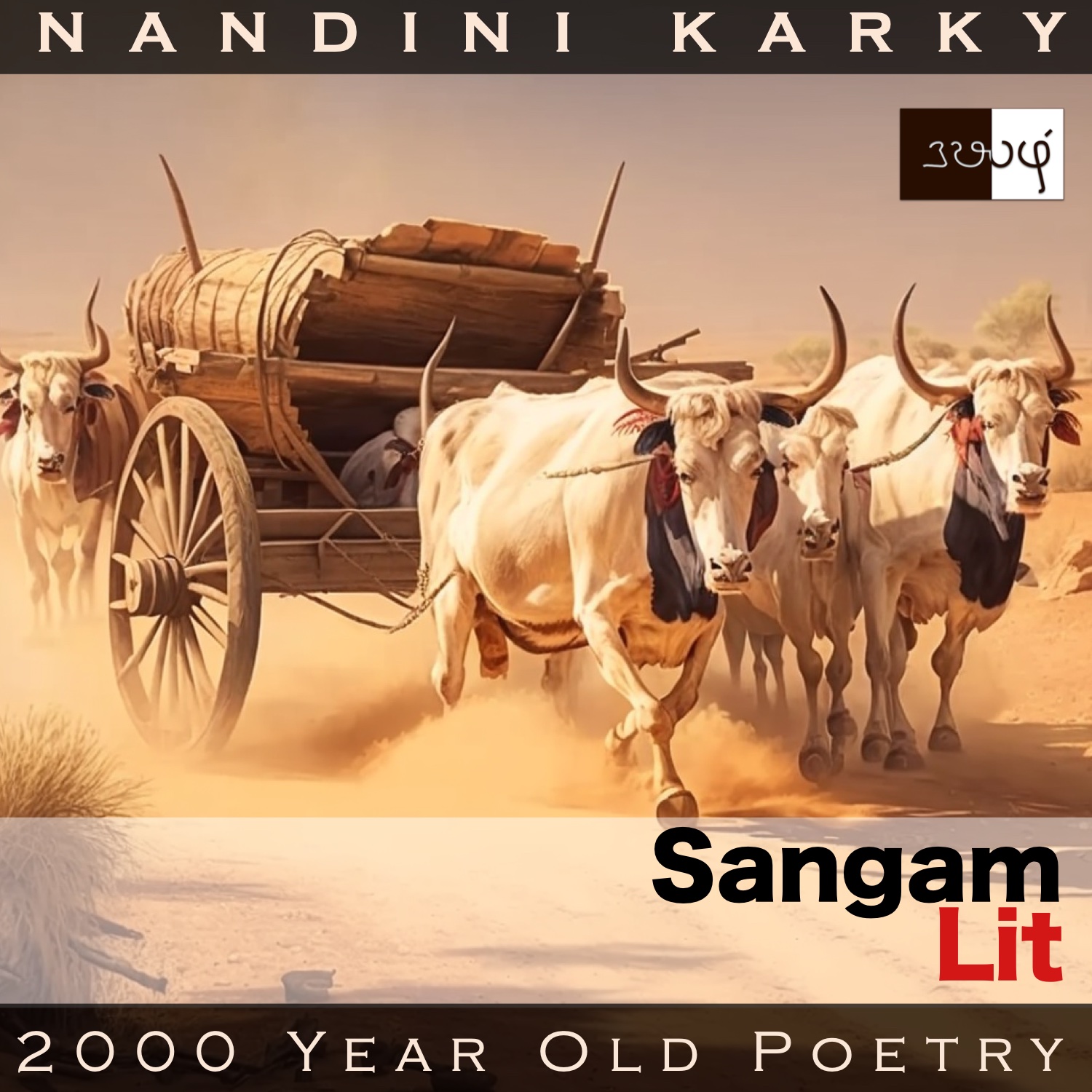Podcast: Play in new window | Download
Subscribe: Apple Podcasts | Spotify | Amazon Music | Android | iHeartRadio | TuneIn | RSS | More
In this episode, we perceive an intriguing simile about occupational events, as portrayed in Sangam Literary work, Puranaanooru 102, penned about the Velir King Athiyamaan Nedumaan Anji’s son Pokuttu Ezhini by the poet Avvaiyaar. The verse is situated in the category of ‘Paadaan Thinai’ or ‘King’s praise’ and talks about the royal’s support to the king’s rule.

எருதே இளைய; நுகம் உணராவே;
சகடம் பண்டம் பெரிது பெய்தன்றே;
அவல் இழியினும், மிசை ஏறினும்,
அவணது அறியுநர் யார்?’ என, உமணர்
கீழ் மரத்து யாத்த சேம அச்சு அன்ன,
இசை விளங்கு கவி கை நெடியோய்! திங்கள்
நாள் நிறை மதியத்து அனையை; இருள்
யாவணதோ, நின் நிழல் வாழ்வோர்க்கே?
A crisp verse in praise of this prince. The poet’s words can be translated as follows:
“The bulls are young; They may not understand the working of the yoke; The things loaded on to the cart are numerous and heavy; When they climb down pits and climb up mounds, who knows what might happen there? Thinking so, salt merchants tie a spare axle on the underside of the wooden beams. Akin to that, you are, O famous leader with generous hands! You are like the glow of the full moon; How can there be any darkness in the lives of those who live in your shade?”
Time to explore the nuances here. The poet starts not by describing the prince’s virtue or skill but talking about young bulls, immature at the intricacies of bearing the yoke through challenging situations. Then, from the bull, the poet turns her attention to the cart and describes how brimming with goods this cart is. Talking about how the cart may have to traverse the ruts and bumps on the road, the poet elaborates what would go on in the mind of the owner of this bullock cart. This person is one among the salt merchants we have often encountered in Sangam verses, who carry the salt from the coastal regions and barter with people living in the other regions. The salt merchants worrying whether the bulls are up to the task, make sure to tie an extra axle to the bullock cart. The poet now comes to the crux of the matter and says that the prince is like that protective axle. Describing him as being like the full moon, the poet ends with the question, how can there ever be darkness for those who look up to the king as their ruler!
The core message of this verse was that King Athiyamaan, even when active on the throne had groomed the young prince as a worthy heir and that indeed, the prince was already assuming duties of governance and taking care of the people well. Through the words of this verse, we can perceive the admiration and trust the people of his domain had in him, and also, the affection of this poet towards him. Most of all, it’s the intricate thought process and priorities in the life of salt merchants in the Sangam era that shines the brightest in this verse!




Share your thoughts...